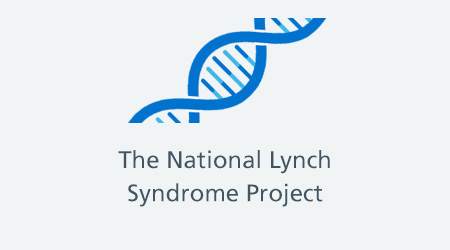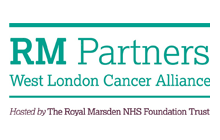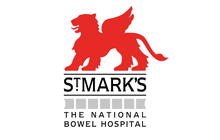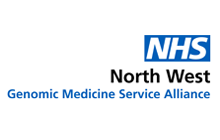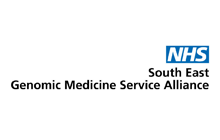Available on the Learning Hub
This programme is available on the NHS Learning Hub. We recommend you read the information on this webpage to find out more about the programme before you access the learning (https://learninghub.nhs.uk/catalogue/national-lynch-syndrome-project).
More information about the Learning Hub and the migration of elfh programmes can be found here.
About The National Lynch Syndrome project programme
The Lynch Syndrome (LS) quality improvement training has been developed to assist healthcare professionals in testing patients for LS and improve identification, prevention and early detection of colorectal and endometrial cancer.
The aims are to:
- support Trusts across England to improve delivery of their local diagnostic pathway for Lynch syndrome
- improve uptake of genetic testing for LS through integration into standard cancer clinics.
The course involves watching short educational videos that cover all the different stages of the LS pathway, and then completing an online questionnaire to ensure the process and procedures for testing have been understood correctly.
In addition, there is a range of supporting documents to help healthcare professionals better understand the pathway and informational resources that clinicians can provide to patients. All are available on the RM Partners website. Lynch Syndrome Supporting Documents Colorectal. Lynch Syndrome Supporting Documents Endometrial.
More information
The NHS Long Term Plan sets an ambition that by 2028, 75% of cancers will be diagnosed at an early stage. One of the ways this will be reached is through targeted screening and personalised surveillance of those most at risk of developing cancer, such as those with Lynch syndrome.
In February 2017 the National Institute of Health and Care Excellence (NICE) recommended universal testing for LS for all newly diagnosed cases of colorectal cancer (NICE DG27) and similarly, in October 2020, recommended universal testing for LS for all newly diagnosed cases of endometrial cancer (NICE DG42).
This training resource was developed as part of the national Lynch syndrome project to help healthcare professionals improve their diagnostic pathway for Lynch syndrome. This provides an opportunity to detect many of these cancers at an earlier stage. It may also help to prevent cancers through risk reduction treatments and appropriate surveillance programmes for patients, and their at-risk family members, who are not yet aware that they have LS and are at risk of developing cancer.
Primary and secondary audiences
This training programme is aimed at healthcare professionals working within the colorectal and gynaecological cancer MDT. Any healthcare professional involved in the care of patients with colorectal or endometrial cancer, including surgeons, oncologists, nurse specialists, and pathologists, can complete this training. There is also training specifically for GPs and other primary care clinicians and nurses.
Meet the team

Dr Kevin Monahan
FRCP PhD | Consultant Gastroenterologist at The St Mark’s Centre for Familial Intestinal Cancer | Honorary Clinical Senior Lecturer at Faculty of Medicine, Department of Surgery & Cancer, Imperial Collage London | National Lynch Project Co-Lead, North Thames Genomic Medicine Service Alliance Project Clinical Lead
Laura Monje-Garcia
Nurse Practitioner at The St Mark’s Centre for Familial Intestinal Cancer | National Lynch project Lead Nurse at North Thames Genomic Medicine Service Alliance
Dr Nicholas West
Associate Professor of Pathology and Honorary Consultant in Gastrointestinal Pathology, University of Leeds.
Dr Adam Shaw
Consultant Clinical Geneticist, Guy’s and St Thomas’ NHS Foundation Trust | National Lynch Project Co-Lead, South East Genomic Medicine Service Alliance Project Clinical Lead
Tim Bill
Programme Director, RM Partners West London Cancer Alliance
Nate Hill
Workforce Lead and Senior Project Manager, RM Partners West London Cancer Alliance
Anna Kim
Project Manager, South East Genomic Medicine Service Alliance Project Clinical Lead
Adele Tyson
Project Manager, South East Genomic Medicine Service Alliance Project Clinical Lead
Karole Smith
TEL Education Content Programme Manager, NHS England
Paul Tingle
TEL Education Content Senior Project Manager, NHS England
Alice Denham
TEL Education Content Lead Learning Designer, NHS England
Roger Ellison
TEL Education Content Learning Designer, NHS England
Rashmi Chavda
TEL Education Content Graphic Designer, NHS England
Nicola Kipling
TEL Education Content Marketing and Communications Officer, NHS England
How to access
To access this elfh programme, you will require a Learning Hub account. If you do not have one, then you can register by selecting the Register button below. Note that if you hold a full elfh account, you can sign into the Learning Hub using your existing login credentials.
To view the The National Lynch Syndrome project programme, select the View button below. If you already have a Learning Hub account, you will also be able to login and access the resources within the programme .
NHS healthcare staff in England – ESR
The The National Lynch Syndrome project programme is also available to NHS healthcare staff via the Electronic Staff Record (ESR). Accessing this e-learning via ESR means that your completions will transfer with you throughout your NHS career.
Further details are available here.
Not an NHS organisation?
If you are not an NHS health or care organisation and therefore do not qualify for free access to the Learning Hub, you may be able to access the service if you have an existing OpenAthens account. Please go to Learning Hub and sign in with your existing credentials.
If you do not have an existing OpenAthens account, please contact elfh directly to check whether you may be eligible for access.
Registering large numbers of users
If you are a HR, IT or Practice Manager and would like to register and enrol large numbers of staff within your organisation for access onto the The National Lynch Syndrome project programme, please contact elfh directly.
Organisations wishing to use their own LMS
For HR departments wanting to know more about gaining access to courses using an existing Learning Management System please contact elfh directly to express interest.
More information
Please select the following link for more information on how to use the Learning Hub



